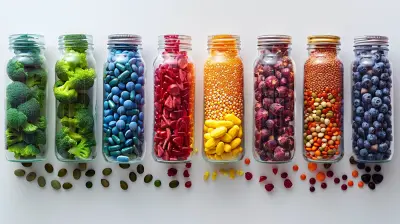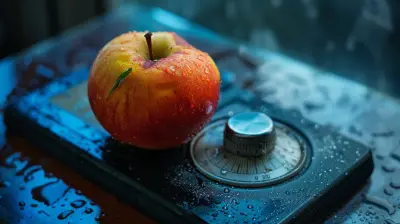Kitchen Essentials for Every Gluten-Free Home Cook
29 April 2025
Going gluten-free? You're not alone—and you're definitely not out of luck when it comes to whipping up delicious meals. But here's the truth bomb: cooking gluten-free isn't just about swapping out wheat flour for a gluten-free alternative and calling it a day. To keep your kitchen safe, your meals tasty, and your life a whole lot easier, it's time to talk kitchen gear.
Whether you're new to the gluten-free game or a seasoned celiac warrior, having the right tools on hand makes all the difference. Cross-contamination is real, and trust me, a single breadcrumb can wreck your day. So, let's break it down. Below are the must-have kitchen essentials every gluten-free home cook should own.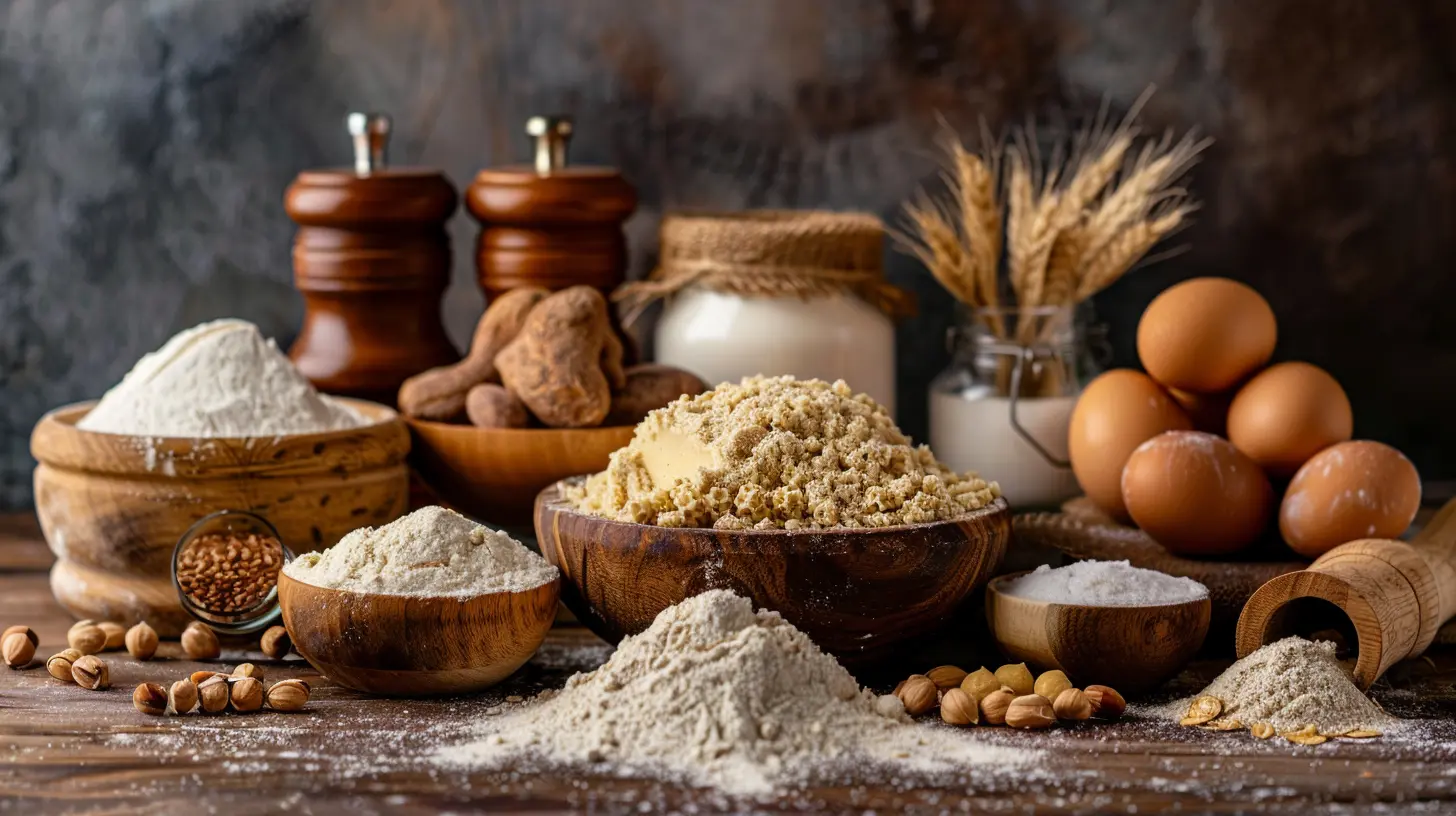
Why Your Kitchen Needs a Gluten-Free Makeover
First things first—why go through the hassle of separate tools and gadgets? If you’re aiming to live gluten-free for medical reasons (hey there, celiac disease) or personal preference, you need to avoid even the tiniest trace of gluten.Did your wooden spoon stir regular pasta last week? Uh-oh. That spaghetti sauce you're making now might not be so gluten-free after all. Gluten can hide in crevices and porous materials—and let's face it, your kitchen might be one sneaky breadcrumb away from betrayal.
But don’t worry. With the right kitchen arsenal, you can cook up gluten-free goodness without the stress.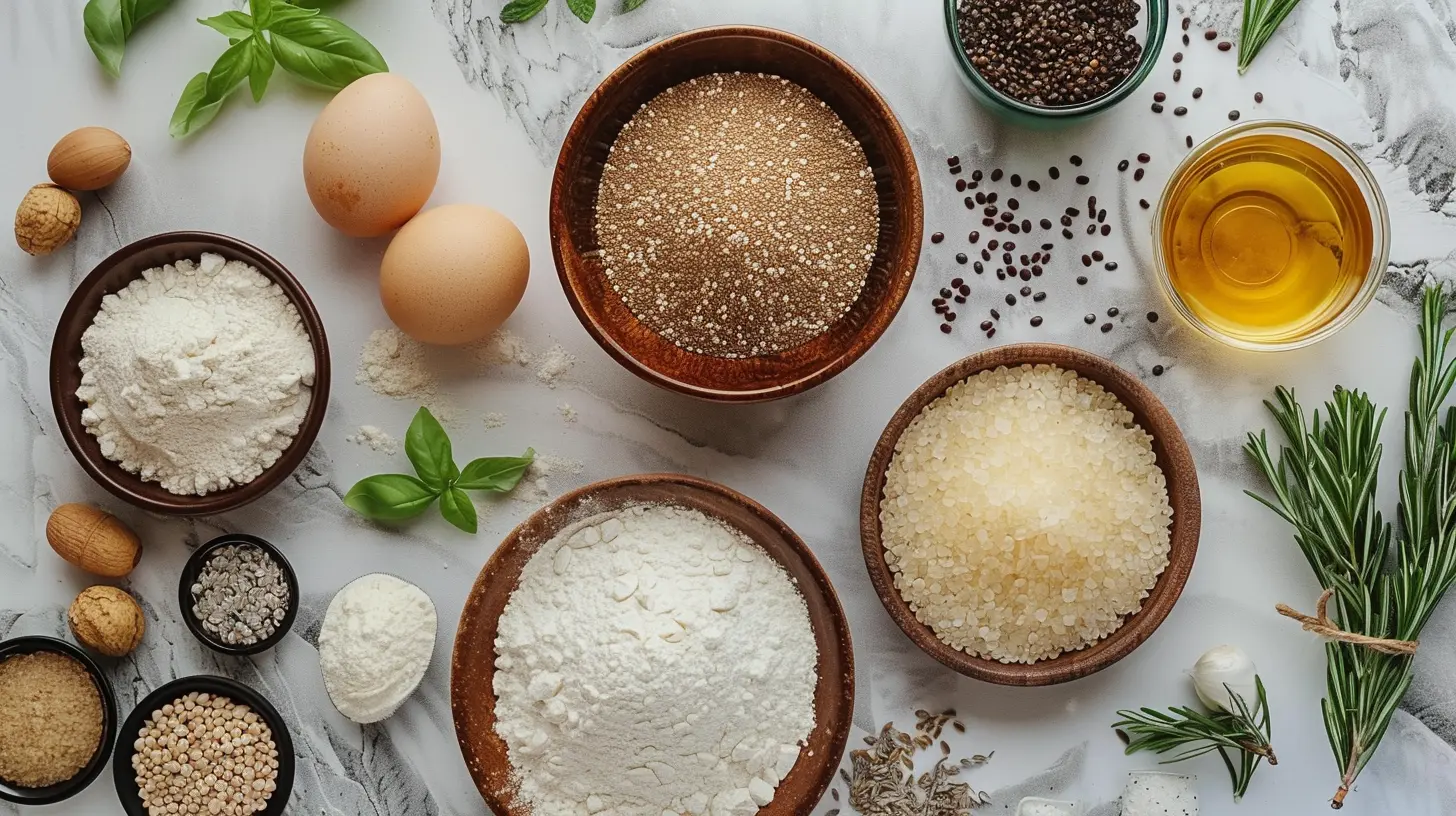
Dedicated Gluten-Free Cutting Boards
Say Goodbye to Gluten-Crumbed Boards
Cutting boards are ground zero for cross-contamination. Wood boards especially can soak up gluten like a sponge. The fix? Get a separate, easy-to-clean plastic or bamboo cutting board marked gluten-free only. Better yet, pick one in a bright color, so there’s no confusion.Pro tip: Label it or keep it in a special spot in your kitchen to avoid mix-ups.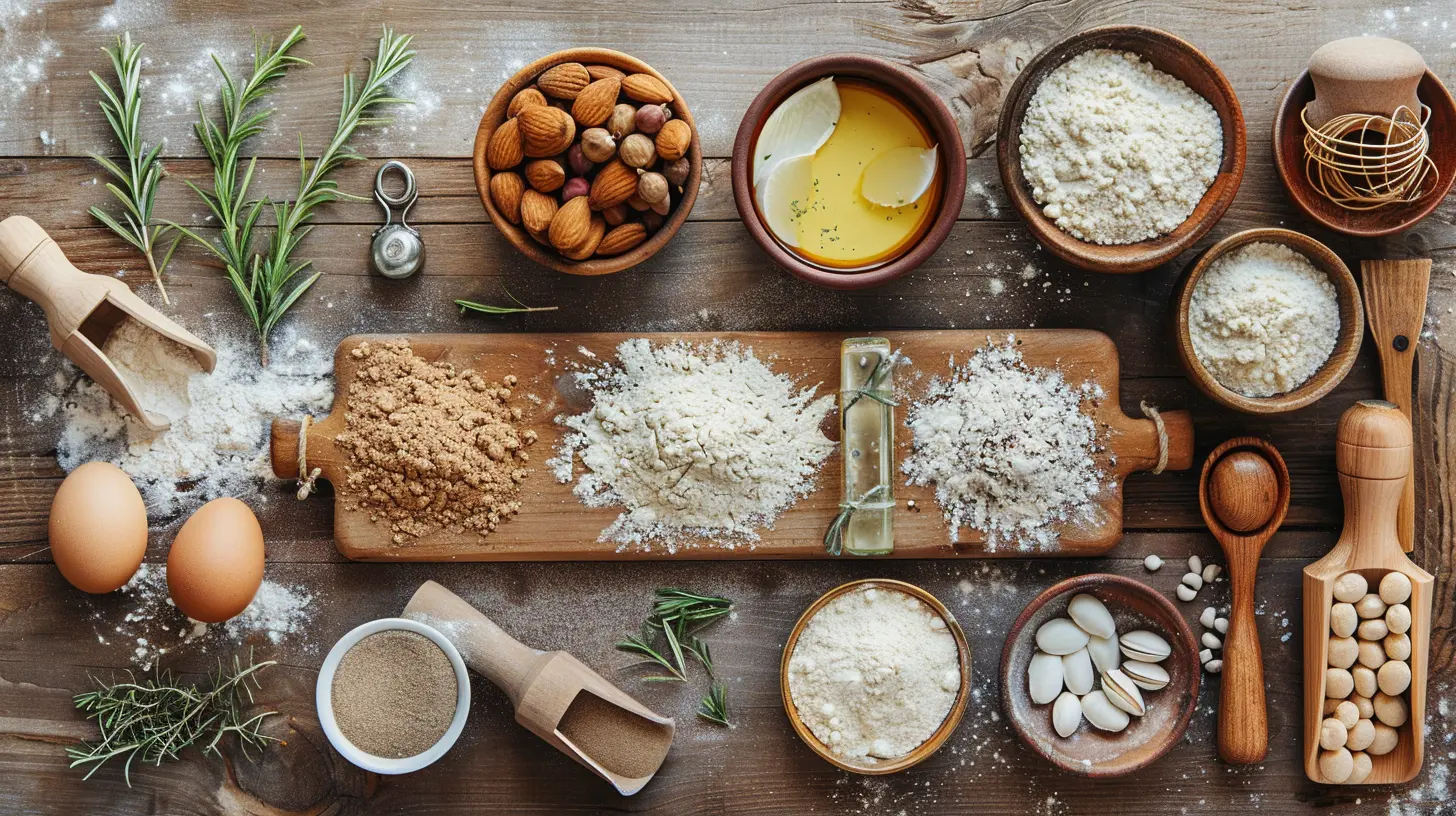
Non-Porous Utensils
No More Sharing Spoons!
Wooden spoons may look rustic and cute, but they are gluten sponges in disguise. If they’ve been used with gluten-laden foods before, it’s time to retire them. Stainless steel, silicone, or hard plastic utensils are the way to go—and yes, get a separate set specifically for gluten-free cooking.Stock up on:
- Spatulas
- Whisks
- Tongs
- Ladles
Keep them in a marked container or drawer to keep things easy and organized.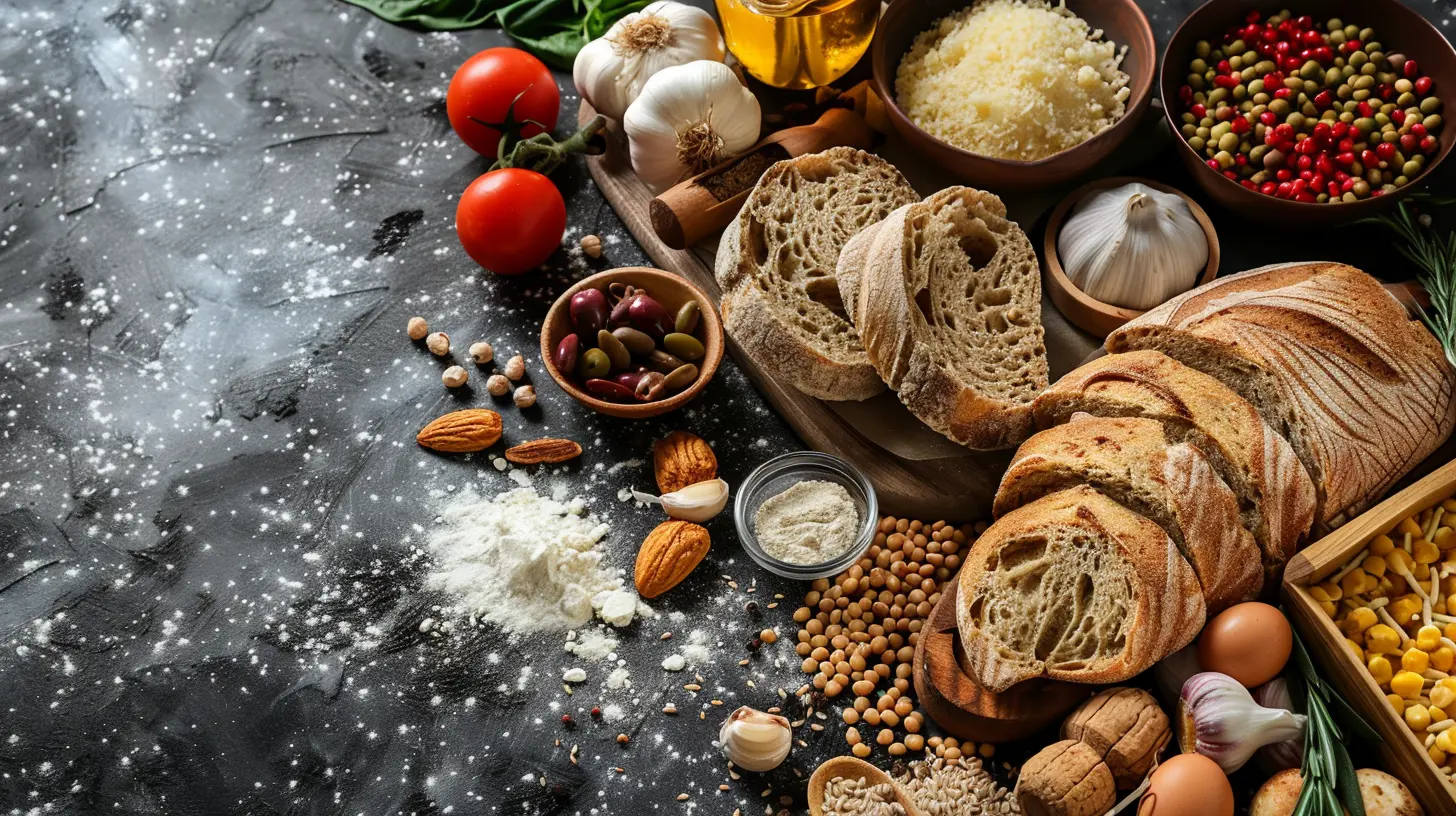
Separate Toaster—No, Seriously
Crumbs Are Tiny, but Mighty Dangerous
Let’s talk about the crumb offender that ruins more gluten-free breakfasts than we’d like to admit—the toaster. Even if you're using gluten-free bread, popping it into a shared toaster is a big nope. The crumbs from previous slices are enough to cause a reaction.Solution? Get a separate toaster just for your gluten-free goodies. Label it loud and proud: GLUTEN-FREE ONLY. Better yet, store it away if you’re living with folks who still eat gluten.
Dedicated Colander or Pasta Strainer
Gluten Hides in the Holes
Did you know gluten can cling to the tiny holes in your pasta strainer—even after washing? Yeah, it's that stubborn. So if you’ve used your colander for regular pasta, it’s not safe for gluten-free noodles anymore.Grab a new one and use it strictly for gluten-free meals. Bonus points if it’s silicone or stainless steel for easy cleaning.
Blender and Food Processor: Clean or Keep Separate
Residue Lurks in the Blades
Kitchen appliances like blenders and food processors have tons of nooks and crannies perfect for gluten to hide in. If you can’t fully disassemble and deep-clean them, it's smarter to have a dedicated one just for gluten-free recipes.If that’s not in the budget, at least make sure you scrub every bolt, blade, and gasket like your digestive peace depends on it—because it kind of does.
Airtight Containers for Gluten-Free Flours
Keep It Fresh, Keep It Safe
If you're baking gluten-free, you're probably juggling a dozen different flours—almond, coconut, rice, sorghum... it’s a party. But storing them in their original messy bags? That’s asking for chaos.Invest in airtight containers. Label them clearly and store them away from gluten-containing ingredients. This keeps your flours dry, fresh, and crumb-free.
Measuring Cups and Spoons: One Set Just for Gluten-Free
A Dash of Gluten Is Still Gluten
Measuring tools are often used back-to-back in kitchens. But if you're scooping gluten-free flour with a cup that just touched regular flour? You’re risking cross-contamination.Solution: Get a second set of measuring cups and spoons, and use them exclusively for gluten-free cooking. Trust me, it’s a small investment that can save your gut.
Cast Iron Cookware—Handle With Care
Great... or Not So Great?
Cast iron pans are amazing, but they’re also porous. If yours has cooked gluten-containing dishes before, it might be time to start fresh. You can try re-seasoning it after a thorough scrub, but honestly? Most gluten-free folks just opt for a dedicated skillet.If you’re buying new, choose ceramic-coated or stainless steel for easier maintenance.
Silicone Baking Mats or Parchment Paper
Say No to Shared Cookie Sheets
Shared cookie sheets can cause big problems. Gluten sticks around—even when you think you’ve scrubbed them clean. Save yourself the stress and invest in silicone baking mats used exclusively for gluten-free baking. Or, use parchment paper as a barrier.Either way, you'll still get those golden-brown cookies without the gluten gamble.
Instant-Read Thermometer
Precision Is Power
A thermometer might not scream “gluten-free essential,” but hear me out. Many gluten-free baked goods cook a bit differently than their gluten-filled cousins. An instant-read thermometer ensures your breads and muffins aren’t undercooked (which can happen more often with alternative flours).No one wants gummy banana bread, right?
Digital Kitchen Scale
Gluten-Free Baking = Precision
If you're baking gluten-free, forget eyeballing ingredients. Different flours have different densities, and using the wrong amount can lead to flops. A digital kitchen scale helps you nail those recipes and keep your texture on point.Bonus: Your pancakes won't taste like cardboard anymore!
Slow Cooker or Instant Pot
One-Pot Wonders Without the Worry
Want to simplify gluten-free cooking? A slow cooker or Instant Pot is your new best friend. You can throw in ingredients, set it, and forget it—without worrying about hidden sauces or additives that might sneak into takeout.Plus, they're super easy to clean and make meal prep a breeze.
Separate Storage Space for Gluten-Free Goods
Give Them Their Own Zone
Designate a special pantry shelf, drawer, or cabinet just for your gluten-free foods. Keeping them away from gluten-filled products cuts way down on cross-contamination risk. Even better? You'll always know where everything is when you’re in a hurry.Must-Have Spices and Condiments
Read Those Labels
Surprise! Some spices and condiments contain hidden gluten. Soy sauce? Usually a trap unless it's labeled gluten-free. Spice blends? Same story.Stock your kitchen with:
- Tamari (gluten-free soy sauce alternative)
- Gluten-free baking powder and baking soda
- Single-ingredient herbs and spices
- Gluten-free broths and bouillons
Buy in bulk, label everything clearly, and store them separately when possible.
The Bonus Round: Label Maker
When in Doubt—Label It
Seriously, a cheap label maker (or even masking tape and a marker) can be your gluten-free best friend. Label drawers, shelves, containers, and tools to avoid confusion—especially if you’re sharing a kitchen with gluten eaters.Because let’s be real—your roommate won’t remember which spatula is safe.
What About Shared Kitchens?
If you're living with gluten lovers, all these essentials are even more critical. Don’t rely on everyone’s memory. Make your gluten-free items obvious. Use different colors, labels, and storage zones. And don’t be shy about setting boundaries. Your health is worth a few extra kitchen rules.Final Thoughts: Built for Gluten-Free Greatness
Setting up a gluten-free kitchen doesn’t mean tossing everything and starting from scratch—but it does mean being mindful. The goal? Equip your cooking space so it works for you, not against you. With the right tools in place, you’ll cook, bake, and eat with confidence.So go on—grab that gluten-free flour, preheat the oven, and start building a kitchen that’s safe, smart, and seriously delicious.
all images in this post were generated using AI tools
Category:
Gluten FreeAuthor:

Angelo McGillivray
Discussion
rate this article
5 comments
Calder Wyatt
Love these tips! Gluten-free cooking made easy!
May 14, 2025 at 2:54 PM

Angelo McGillivray
Thank you! I'm glad you found the tips helpful! Happy cooking!
Mabel Martinez
This article is a fantastic guide for gluten-free cooking! The essential kitchen tools and ingredients listed will definitely empower home cooks to create delicious, safe meals with ease.
May 7, 2025 at 4:27 PM

Angelo McGillivray
Thank you! I'm glad you found the guide helpful for gluten-free cooking! Happy cooking!
Teagan Turner
Great insights—essential tools for success!
May 4, 2025 at 3:04 AM

Angelo McGillivray
Thank you! I'm glad you found the insights useful!
Uma Moses
Gluten-free cooking doesn’t have to be bland or boring! Stock your kitchen with these essentials and watch your culinary creations transform. Say goodbye to those sad, crumbly recipes and hello to delicious dishes that will impress even the most skeptical gluten lovers. Ready to elevate your kitchen game? Let’s do this!
May 2, 2025 at 3:05 PM

Angelo McGillivray
Absolutely! With the right ingredients and tools, gluten-free cooking can be vibrant and exciting. Let's get cooking!
Callisto Barron
Thank you for sharing these essential tips for gluten-free cooking! It’s heartening to see support for those navigating dietary restrictions. Your insights not only empower home cooks but also foster a sense of community. Every step towards inclusivity makes a difference. Keep inspiring!
May 2, 2025 at 4:53 AM

Angelo McGillivray
Thank you for your kind words! I'm glad to hear the tips resonate and help foster community support for gluten-free cooking. Happy cooking!

